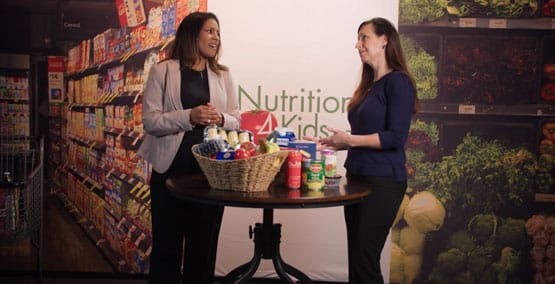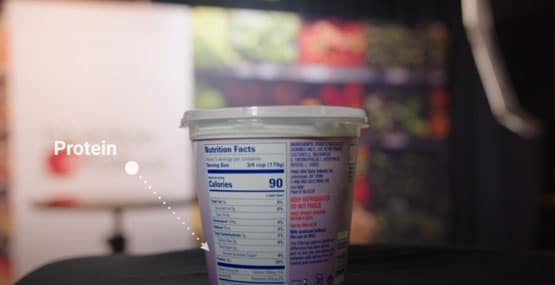
Save time and money going to the grocery
By taking the time to plan and organize before heading to the grocery store, you can save time, money, make healthier choices and cut down on your stress. As our dietitians remind you on our video, Preparing for Grocery Shopping, there are lots of mindful ways to make grocery shopping a positive and quicker experience.
- Make a shopping list: Take a look at what you already have at home, so you'll know what you need. Categorize your list by food groups or sections of the store to make it easier to navigate when you get there. Include specific quantities to avoid buying more than necessary. Having a shopping list helps you stay focused and prevents impulse purchases. Think too of the fruits and vegetables that are in season, since they are often less expensive. When they're not in season, you might want to consider frozen varieties.
- Plan your meals: If you can, plan your meals for the upcoming week before making your shopping list. Consider your schedule, dietary preferences, and any special occasions. Choose recipes that use similar ingredients to minimize waste and maximize versatility. Write down the ingredients you need for each meal on your shopping list. Meal planning helps you to buy the necessary ingredients and ensures you have a variety of nutritious options throughout the week. And it cuts down on slipping extra items into your cart—the ones you might regret later.
- Check store circulars and coupons: Before heading to the store, check the store circulars and online coupons. Look for deals and discounts on the items you need—or similar ones you can use instead to reduce your food budget. Many grocery stores have apps or websites where you can find digital coupons and special promotions. Take advantage of these offers to save money on your grocery bill. Be mindful, however, of only purchasing items you need and avoiding impulse buys.
- Consider your family's nutritional needs: Every family is different in what they like and eat—and sometimes, members of the family have different needs as well. When preparing for grocery shopping, think about their nutritional needs and the proper portions that should be healthy for them. Determine which food groups you need to focus on and ensure your list includes a variety of fruits, vegetables, whole grains, lean proteins, and dairy or dairy alternatives. Aim for a balance of nutrients to support a healthy diet. Take particular note of any dietary restrictions or food allergies to ensure you select appropriate options.
- Bring reusable bags and containers: You reduce your environmental impact by bringing reusable bags and containers. Bring enough bags to accommodate your shopping list and minimize the use of plastic bags. Consider bringing containers for items purchased in bulk, such as grains or nuts. This helps reduce waste and promotes sustainable shopping practices.
Conclusion: Preparing for grocery shopping sets the stage for a successful trip. Make a shopping list, plan your meals, and check for deals and coupons to save money. Consider your nutritional needs and bring reusable bags and containers to reduce waste. By being prepared, you can streamline your shopping experience and make healthier choices for yourself and the environment. We can show you how on our grocery shopping video series, starting with Preparing for Grocery Shopping.





